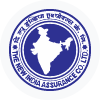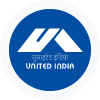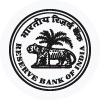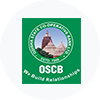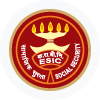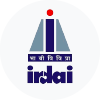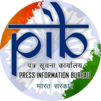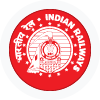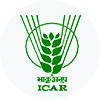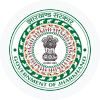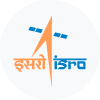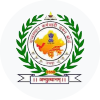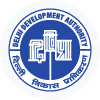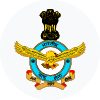What is NABARD Grade A Exam?
National Bank for Agriculture and Rural Development is the full form of NABARD and it is the apex level development bank established on 12 July 1982. Applications are invited from Indian citizens for the post of Assistant Manager in Grade ‘A' in the Rural Development Banking Service (RDBS) /Rajbhasha Service in National Bank for Agriculture and Rural Development (NABARD). Candidates can apply only online on NABARD website ie https://www.nabard.org/. NABARD is an all India Apex Organization, wholly owned by Government of India and is an equal opportunity employer.
NABARD Grade A Exam Latest Update
Here we are providing you with the latest updates of NABARD Grade A 2023 Exam so that you can know what are the changes (if at all) in NABARD Grade A Exam from 2022 to 2023 and all the information related to NABARD Grade A Exam dates is given in the below table.
| Particulars | NABARD Grade A Important Dates |
| NABARD Grade A Notification Release | September 1, 2023 |
| Apply Online Start Date | September 2, 2023 |
| Last Date to Apply Online | September 23, 2023 |
| Prelims Admit Card Release | To be notified soon |
| Prelims Exam Date | October 16, 2023 (Tentative) |
| Mains Admit Card Release | To be notified soon |
| Mains Exam Date | To be notified soon |
| Interview Result | To be notified soon |
NABARD Grade A Vacancies 2023
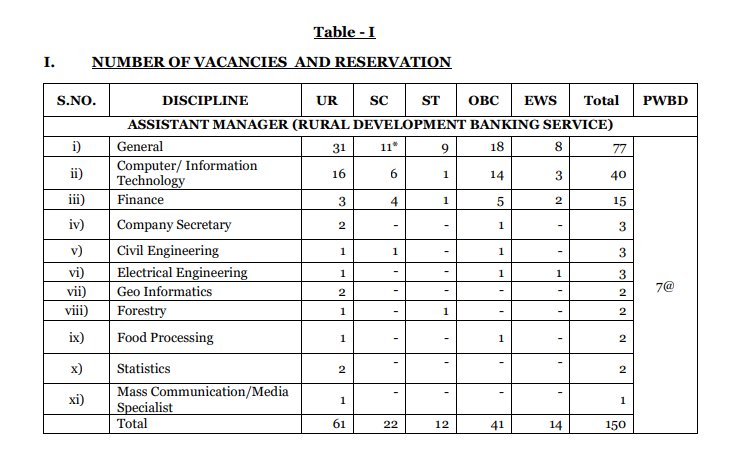
NABARD Grade A Exam Highlights
NABARD Grade A Exam - National Bank for Agriculture and Rural Development is the apex body that looks after the development and growth of agriculture in India. The key function is to look after all the agricultural finance related issues with respect to the development of Indian agriculture. The NABARD Grade A officer recruitment is conducted by NABARD to hire young individuals at the manager level to perform various functions of NABARD.
| Particular | Exam Overview |
| Exam Name | NABARD Grade A |
| Established | July 12, 1982 |
| Conducting Authority | NABARD |
| Chairman: | Dr. Harsh Kumar Bhanwala |
| Full Form of NABARD | National Bank for Agriculture and Rural Development |
| Posts Offered | Asst. Manager in R&SS, RDBS, Rajbhasha Adhikari, Legal |
| Official Notification | 1st Sep 2023 |
| Vacancies | 150 |
| Salary | Rs. 62,600 per month |
| Job Location | Pan India |
| Exam Date | To be Notified |
| Application Mode | Online |
| Application Fee | - SC/ST - Rs. 150
- For others - Rs. 800
|
| Selection process stages | - Phase 1 (Prelims)
- Phase 2 (Mains)
- interview
|
| Official Website | www.NABARD.org |
NABARD Grade A 2023 Notification
The official notification of NABARD Grade A is now released. The online application link is already active and the last date for the same is 23rd Sep, 2023. Exam Dates of NABARD Grade A will also be mentioned in the notification. Also, details of dates of preliminary exam, main exam and interview of NABARD Grade A exam will be provided in this document.
NABARD Grade A 2023 Eligibility Criteria
Eligibility Criteria is really an important factor that every candidate must check before applying for any exam. NABARD Grade A has prescribed educational qualification eligibility for all the streams of the exam. Read the information given below to know about the eligibility for NABARD Grade A Exam 2023.
Here we are providing you NABARD Grade A Eligibility Criteria, Age Relaxation and Education Qualification.
NABARD Grade A 2023 Age Limit
- Minimum Age: 21 years
- Maximum Age: 30 years
As per the NABARD Grade A Notification 2023, the candidate must be between 21 and 30 years of age as of 01-07-2023, i.e. The candidate must not have been born earlier than 02-07-1992 and not later than 01-07-2002.
NABARD Grade A Age Relaxation
Upper age limit may be relaxed by -
- 03 years in case of eligible OBC applicants,
- a maximum of 05 years in case of : (i) Applicants belonging to SC/ST , if the posts are reserved for them (ii) Ex-servicemen (including Emergency Commissioned Officers/Short Service Commissioned Officers) provided that the applicants have rendered at least five years continuous Military Service and have been released on completion of assignment (including those whose assignment is due to be completed within one year) otherwise than by way of dismissal or discharge on account of misconduct or inefficiency or on account of physical disability or have been released on account of physical disability attributable to Military Service or on invalidation (iii) Emergency Commissioned Officers/Short Service Commissioned Officers who have completed their initial period of assignment of five years of Military Service but whose assignment has been extended beyond five years and in whose case, on selection, the Ministry of Defence issues certificates that they would be released within 03 months from the date of receipt of offer of appointment, (iv) Children/family members of victims died in the1984 riots.
- 10 years for PWBD (General); 13 years for PWBD (OBC) and 15 years for PWBD
(SC/ST) applicants.
NOTE: NO CUMULATIVE AGE RELAXATION WILL BE AVAILABLE TO ANY
APPLICANT, SAVE AS PROVIDED ABOVE.
NABARD Grade A 2023 Educational Qualification
The NABARD Grade A Educational Qualification details of different posts have been given below for your reference:
Generalist Post
Bachelor's Degree in any subject from a recognized University with a minimum of 60% marks (SC/ST/PWBD applicants – 55%) in aggregate.
or
Post Graduate degree, MBA/PGDM with a minimum of 55% marks (SC/ST/PWBD applicants – 50%) in aggregate.
or
CA/ CS/ICWA OR PhD from Institutions recognized by GOI/UGC.
In case University/Institute defines criteria for conversion of Aggregate Grade Point into Class and/or percentage of marks, the same will be accepted. However, where the University/Institute does not define criteria for conversion of Aggregate Grade Point into Class and/or percentage of marks, the undefined parameter(s) would be worked out as under:
Equivalent CGPA/ OGPA/ CPI or similar terminologies allotted on a 10-point scaleClass / DivisionAggregate % of Marks
| | | |
| 6.75 | I (First) | 60% |
| 6.25 | II (Second) | 55% |
| 5.75 | II (Second) | 50% |
| 5.25 | II (Second) | 45% |
Aggregate Grade Point or percentage of marks where awarded would mean aggregate over the entire duration of the course.
General Agriculture
Bachelor's Degree in Agriculture with 60% marks (SC/ST/PWBD applicants – 55%) in aggregate.
or
Post-Graduate degree in Agriculture / Agriculture (Soil Science/ Agronomy) with a minimum of 55% marks (SC/ST/PWBD applicants – 50%) in aggregate from a recognized University / Institution.
Agriculture Engineering
Bachelor's Degree in Agriculture Engineering with 60% marks (SC/PWBD applicants – 55%) in aggregate.
or
Post-Graduate degree in Agriculture Engineering with a minimum of 55% marks (SC/PWBD applicants – 50%) in aggregate from a recognised University / Institution.
Animal Husbandry
Bachelor's Degree in Veterinary Sciences / Animal Husbandry from any recognized University with a minimum of 60% marks (SC/PWBD applicants – 55%) in aggregate.
and/or
Post Graduate degree in Veterinary Sciences / Animal Husbandry with a minimum of 55% marks (SC/PWBD applicants – 50%) in aggregate.
Land Development – Soil Science
Bachelor's Degree in Agriculture / Agriculture (Soil Science/Agronomy) with 60% marks (PWBD applicants – 55%) in aggregate.
or
Post Graduate degree in Agriculture / Agriculture (Soil Science/Agronomy) with a minimum of 55% marks (PWBD applicants – 50%) in aggregate from a recognized University / Institution.
Fisheries
Bachelor's degree in Fisheries Science from a recognized University/Institution with 60% marks (SC/PWBD applicants 55%) in aggregate
or
Postgraduate degree in Fisheries Science with 55% marks (SC/PWBD applicants 50%) in aggregate.
Forestry
Bachelor's degree in Forestry from a recognized University/Institution with 60% marks (SC/PWBD applicants – 55%) in aggregate
or
Postgraduate degree in Forestry with 55% marks (SC/PWBD applicants – 50%) in aggregate.
Plantation/Horticulture
Bachelor's Degree in Horticulture from any recognized University with a minimum of 60% marks (SC/PWBD applicants – 55%) in aggregate
or
Post Graduate degree in Horticulture with a minimum of 55% marks (SC/PWBD applicants – 50%) in aggregate.
Water Resources
Bachelor's degree in Hydrology/Applied Hydrology or Geology/Applied Geology with Hydrogeology /Irrigation /Water Supply & sanitation as one of the subjects with 60% marks (PWBD applicants 55%) in aggregate
or
Post Graduate degree in Hydrology/Applied Hydrology or Geology/Applied Geology with Hydrogeology/Irrigation /Water Supply & sanitation as one of the subjects with 55% marks in aggregate (PWBD applicants 50%) from a recognized University.
Finance
BBA (Finance/Banking) / BMS (Finance/Banking) with 60% marks (SC/ST/PWBD applicants – 55%)
or
Two years full-time P.G. Diploma in Management (Finance) / Full-time MBA (Finance) degree with 55% (SC/ST/PWBD applicants – 50%) from Institutions/ Universities recognized by GoI /UGC with Bachelor's Degree in any discipline. Candidates will be required to submit a certificate from Institution/University regarding specialization in finance
or
Bachelor of Financial and Investment Analysis with 60% marks (SC/ST/PWBD applicants – 55%)
or
Bachelor's degree in any discipline from a recognized University/Institution with Membership of the Institute of Chartered Accountants of India (ICAI). The Membership of ICAI must have been obtained on or before 01-07-2021 OR CFA.
Computer & Information Technology
Bachelor's Degree in Computer Science/ Computer Technology/ Computer Applications/Information Technology with 60% marks (SC/PWBD applicants 55%) in aggregate
or
A postgraduate degree in Computer Science/ Computer Technology/ Computer Applications/Information Technology with 55% marks (SC/PWBD applicants 50%) in aggregate from a recognized university.
NABARD Grade A Exam Dates
Here we are providing you NABARD Grade A Exam Dates so that all the candidates can start their exam preparation as soon as possible and crack NABARD Grade A Exam.
| Particulars | NABARD Grade A Important Dates |
| NABARD Grade A Notification Release | September 1, 2023 |
| Apply Online Start Date | September 2, 2023 |
| Last Date to Apply Online | September 23, 2023 |
| Prelims Admit Card Release | To be notified soon |
| Prelims Exam Date | October 16, 2023 (Tentative) |
| Mains Admit Card Release | To be notified soon |
| Mains Exam Date | To be notified soon |
| Interview Result | To be notified soon |
NABARD Grade A Apply Online 2023
Eligible applicants are required to apply online through the website www.nabard.org. No other means/ mode of application will be accepted. The application form should be filled in English only. Option for the use of Hindi language will be available for the Online/Main Examination/ Interview.
Detailed Guideline / Procedure for NABARD Grade A
- NABARD Grade A Application Registration
- NABARD Grade A Payment of Application Fee
- NABARD Grade A Photograph & Signature Scan and Upload
How to Apply for NABARD Grade A
- Candidates to go to the NABARD Grade A official website www.nabard.org/career, click on the option "APPLY ONLINE" which will open a new screen.
- To register an application, choose the tab "Click here for New Registration and enter Name, Contact details and Email-id. A Provisional Registration Number and Password will be generated by the system and displayed on the screen. Candidates should note down the Provisional Registration Number and Password. An Email & SMS indication the Provisional Registration number and Password will be sent at the given email ID and mobile number.
- In case the candidate is unable to complete the application form in one go, he / she can save the data already entered by choosing "SAVE AND NEXT" tab.
- Candidates are advised to carefully fill and verify the details filled in the online application themselves as no change will be possible after clicking the FINAL SUBMIT BUTTON.
- The name of the candidate or his /her Father/ Husband etc. should be spelt correctly the application as it appears in the Certificates / Mark sheets as well as valid ID Proof brought for the examination. Any change/alteration found may disqualify the candidature.
- Validate your details and Save your application by clicking the 'Validate your details' and 'Save & Next' button.
- Candidates can proceed to upload Photo & Signature as per the specifications given in the Guidelines for Scanning and Upload of Photograph and Signature detailed
- Candidates can proceed to fill other details of the Application Form.
- Click on the Preview Tab to preview and verify the entire application form before FINAL SUBMIT.
- Modify details, if required, and click on 'FINAL SUBMIT' ONLY after verifying and ensuring that the photograph, signature uploaded and other details filled by you are correct.
- Click on the 'Payment' Tab and proceed for payment.
- Click on the 'Submit' button.
NABARD Grade A Application Fees 2023 (Expected)
The NABARD Grade A 2023 Notification PDF will be released soon on the official Website. After the application form is completed, candidates are taken to the payment gateway. Candidates can pay through Debit Card (RuPay/Visa/MasterCard/Maestro), Credit Card, Internet Banking, IMPS, Cash Card/Mobile Wallet through any mode. You can pay the application fee of NABARD Grade A. If you don't make the payment, the application form can be cancelled, so all the candidates should make the payment along with filing the application form.
| Category of applicant | Application Fee | Intimation charges | Total |
| For SC/ ST/ PWBD | NIL | 150 | 150 |
| For all others | 650 | 150 | 800 |
| Staff @ | @ | @ | @ |
Exclusive of applicable GST
@All NABARD employees satisfying the educational qualification criteria would be eligible to apply. They will be required to pay fee/intimation charges as indicated above at the time of online application, which will be reimbursed on submission of fee receipt only to those employees of NABARD (Staff Candidates) who satisfy the eligibility criteria for the post. The status as staff candidate will be verified at the time of interview.
NABARD Grade A Nos of Attempts
There is no limit on the number of attempts for NABARD Grade A Recruitment, but the age limit is well decided by the recruitment board, so a candidate can apply for NABARD Grade A only if he fulfills the age limit criteria. Thus National Bank for Agriculture and Rural Development (NABARD) has decided that candidates between 18 years to 27 years can apply for NABARD Grade A 2023.
NABARD Grade A Selection Process
As per the NABARD Grade A notification, the selection process of NABARD Grade A is classified into three stages, first all the candidates have to crack the prelims exam, then those candidates who crack the preliminary exam are moved to the Mains exam. After cracking the Mains exam, they face the interview Process.
- Preliminary Exam
- Mains Exam
- Interview
NABARD Grade A Exam 2023
Here we have provided NABARD Grade A Syllabus for Phase I, Phase II and Phase III Exams, which will help the candidates a lot. NABARD Exam Pattern 2023 is divided into three phases:
- Preliminary Exam (Phase I): Objective Type Paper
- Mains Exam (Phase II): Objective Type Paper & Online Descriptive Type
- Interview (phase III)
NABARD Grade A Prelims Exam Pattern
Here we are providing NABARD Grade A Exam Pattern, Preliminary Exam Pattern to the candidates, so that all NABARD Grade A candidates can get an idea of the exam.
| Name of the Test | No. of Question | No. Of Marks |
| Test of Reasoning | 20 | 20 |
| English Language | 30 | 30 |
| Computer Knowledge | 20 | 20 |
| Quantitative Aptitude | 20 | 20 |
| Decision Making | 10 | 10 |
| General Awareness | 20 | 20 |
Economic & Social Issues (with focus on Rural India) | 40 | 40 |
Agriculture & Rural Development (with emphasis on Rural India) | 40 | 40 |
| Total | 200 | 200 |
| Time: Composite time of 120 Minutes for all the tests together |
Important Pointers to Note for Preliminary Exam.
- Qualifying Section - Test of Reasoning, English Language, Computer Knowledge, Quantitative Aptitude, Decision Making.
- Merit Section - General Awareness, Eco & Soc. Issues (with focus on Rural India), Agriculture & Rural Development with Emphasis on Rural India.
- Shortlisting of the candidates for the Main exam will be based on marks scored in the merit section only.
NABARD Grade A Mains Exam Pattern
Here we have provided you with the exam pattern of NABARD Grade A Mains Exam, so that you are aware about how many sections are there in NABARD Grade A Mains exam (Phase 2) and how many marks do they carry.
NABARD Grade A Main Exam Pattern for the post of Generalist
| Paper | Grade A | Type of Paper | No. of Questions | Marks | Duration | Remarks |
| Paper I | General English | Online Descriptive | 3 | 100 | 90 Minutes | Descriptive Answers to be typed using keyboard |
| Paper II | ESI & ARD | Objective | 30 | 50 | 30 Minutes | |
| | | Descriptive Type | 6 questions will be asked, of which candidates will be required to attempt 4 questions [2 of 15 marks each (with difficulty level) and 2 of 10 marks each] | 50 | 90 Minutes | Descriptive Answers to be typed using keyboard either in English or Hindi (Remington and Inscript keyboards) |
NABARD Grade A Main Exam Pattern for the post of Specialist
| Paper | Grade A | Type of Paper | No. of Questions | Marks | Duration | Remarks |
| Paper I | General English | Online Descriptive | 3 | 100 | 90 Minutes | Descriptive Answers to be typed using keyboard |
Paper II | Stream Specific Paper | Objective | 30 | 50 | 30 Minutes | |
| | | Descriptive Type | 6 questions will be asked, of which candidates will be required to attempt 4 questions [2 of 15 marks each (with difficulty level) and 2 of 10 marks each] | 50 | 90 Minutes | Descriptive Answers to be typed using keyboard either in English or Hindi (Remington and Inscript keyboards) |
NABARD Grade A Main Exam Pattern for the post of Rajbhasha
| Paper | Grade A | Type of Paper | No. of Questions | Marks | Duration | Remarks |
| Paper I | General English | Online Descriptive | 3 | 100 | 90 Minutes | Descriptive Answers to be typed using keyboard |
| Paper II | Stream Specific Paper | Objective | 30 | 50 | 30 Minutes | |
| | | Descriptive Type | 6 questions will be asked, of which candidates will be required to attempt 4 questions [2 of 15 marks each (with difficulty level) and 2 of 10 marks each] | 50 | 90 Minutes | Descriptive Answers to be typed using keyboard in Hindi ( with Remington /Inscript keyboard) |
Important Note: Negative Marking
- For every wrong answer marked, 1/4th of the marks assigned to that question will be deducted as a penalty in Preliminary and Mains, both.
NABARD Grade A 2023 Officer Interview
Interview - 50 Marks
- The calling ratio to qualify for the main examination and interview would be a maximum of 1:25 and 1:3.
- The final selection and ranking of the applicants for the post of Assistant Manager in Grade 'A' (RDBS/Rajbhasha) will be based on their performance in the Phase-II Main Examination and Interview, taken together.
NABARD Grade A Syllabus 2023
The syllabus for Reasoning, Quantitative Aptitude, Computer Knowledge and General Awareness for the Phase 1 Exam is the same as that of banking exams. Following is a list of the topics to be prepared for these sections and for sections of ESI & ARD.
NABARD Grade A Reasoning Syllabus
Puzzles (Seating arrangement, linear seating arrangement, floor-based), Syllogism, Data sufficiency, Statement based questions (Verbal reasoning), Inequality, Miscellaneous Questions, Input-Output, Blood relations etc.
NABARD Grade A Quantitative Aptitude Syllabus
Data Interpretation, Quadratic Equations, Number Series, Simplification/ Approximation, Profit & Loss, SI & CI Interest, Data Sufficiency, etc.
NABARD Grade A Computer Knowledge Syllabus
Networking, Input-output devices, DBMS, MS Office, Internet, History of computer & generations etc.
NABARD Grade A General Awareness Syllabus
Current Affairs (Agriculture Focused), Banking Awareness and Economy (Agriculture Focused), Agricultural Insurance, Important people in the news, Sports News, Appointments, etc.
NABARD Grade A English Syllabus
Reading comprehension, Cloze test, Sentence improvement, Spotting the errors, Fill in the blanks, Sentence rearrangement
NABARD Grade A Agriculture and Rural Development (ARD) Syllabus
Agriculture: Definition, meaning and its branches, Agronomy: definition, meaning and scope of agronomy. Classification of field crops. Factors affecting crop production, Agro Climatic Zones; Cropping Systems: Definition and types of cropping systems.Problems of dryland agriculture, Seed production, Seed processing, Seed village
Meteorology: weather parameters, crop-weather advisory; Precision Farming, System of Crop Intensification, organic farming.
Soil and Water Conservation: Major soil types, soil fertility, fertilisers, soil erosion, soil conservation, watershed management.
Water Resource: Irrigation Management: types of irrigation, sources of irrigation, crop-water requirement, command area development, water conservation techniques, micro-irrigation, irrigation pumps, major, medium, and minor irrigation.
Farm and Agri Engineering: Farm Machinery and Power, Sources of power on the farm- human, animal, mechanical, electrical, wind, solar and biomass, biofuels, water harvesting structures, farm ponds, watershed management, Agro-Processing, Controlled and modified storage, perishable food storage, godowns, bins and grain silos.
Plantation & Horticulture: Definition, meaning and its branches. Agronomic practices and production technology of various plantation and horticulture crops. Post-harvest management, value and supply chain management of Plantation and Horticulture crops.
Animal Husbandry: Farm animals and their role in the Indian economy, Animal husbandry methods in India, common terms pertaining to different species of livestock, Utility classification of breeds of cattle. Introduction to common feeds and fodders, their classification and utility. Introduction to the poultry industry in India (past, present and future status), Common terms pertaining to poultry production and management. Concept of mixed farming and its relevance to socio-economic conditions of farmers in India. Complimentary and obligatory nature of livestock and poultry production with that of agricultural farming.
Fisheries: Fisheries resources, management, and exploitation - freshwater, brackish water and marine; Aquaculture- Inland and marine; biotechnology; post-harvest technology. Importance of fisheries in India. Common terms pertaining to fish production.
Forestry: Basic concepts of Forest and Forestry. Principles of silviculture, forest mensuration, forest management and forest economics. Concepts of social forestry, agro-forestry, joint forest management. Forest policy and legislation in India, India State of Forest Report 2015. Recent developments under the Ministry of Environment, Forest, and Climate Change.
Agriculture Extensions: Its importance and role, methods of evaluation of extension programmes, Role of Krishi Vigyan Kendra's (KVK) in the dissemination of Agricultural technologies.
Ecology and Climate Change: Ecology and its relevance to man, natural resources, their sustainable management, and conservation. Causes of climate change, Green House Gases (GHG), major GHG emitting countries, climate analysis, distinguish between adaptation and mitigation, climate change impact to agriculture and rural livelihood, carbon credit, IPCC, UNFCCC, CoP meetings, funding mechanisms for climate change projects, initiatives by Govt of India, NAPCC, SAPCC, INDC.
Present Scenario of Indian Agriculture and Allied activities: Recent trends, major challenges in agriculture measures to enhance the viability of agriculture. Factors of Production in agriculture, Agricultural Finance and Marketing, Impact of Globalization on Indian Agriculture and issues of Food Security, Concept and Types of Farm Management.
Rural Development: Concept of Rural Area, Structure of the Indian Rural Economy- Importance and role of the rural sector in India - Economic, Social and Demographic Characteristics of the Indian rural economy, causes of Rural Backwardness. Rural population in India; Occupational structure, Farmers, Agricultural Labourers, Artisans, Handicrafts, Traders, Forest dwellers/tribes and others in rural India- Trends of change in rural population and rural workforce; problems and conditions of rural labour; Issues and challenges in Handlooms Panchayati Raj Institutions – Functions and Working. MGNREGA, NRLM – Aajeevika, Rural Drinking water Programmes, Swachh Bharat, Rural Housing, PURA, and other rural development programmes.
NABARD Grade A Economic & Social Issues Syllabus
Nature of Indian Economy - Structural and Institutional features - Economic underdevelopment - Opening the Indian Economy - Globalisation - Economic Reforms in India - Privatisation.
Inflation - Trends in Inflation & their Impact on National Economy and Individual Income.
Poverty Alleviation and Employment Generation in India - Rural and Urban - Measurement of Poverty - Poverty Alleviation Programmes of the Government. Population Trends - Population Growth and Economic Development - Population Policy in India.
Agriculture - Characteristics / Status - Technical and Institutional changes in Indian Agriculture - Agricultural performance - Issues in Food Security in India - Non-Institutional and Institutional Agencies in rural credit. Industry - Industrial and Labour Policy - Industrial performance - Regional Imbalance in India's Industrial Development - Public Sector Enterprises.
Rural banking and financial institutions in India - Reforms in Banking/ Financial sector.
The globalisation of Economy - Role of International Funding Institutions - IMF & World Bank - WTO - Regional Economic Co-operation.
Social Structure in India - Multiculturalism - Demographic trends - Urbanisation and Migration - Gender Issues Joint family system - Social Infrastructure - Education - Health and Environment. Education - Status & System of Education - Socio-Economic Problems associated with Illiteracy - Educational relevance and educational wastage - Educational Policy for India. Social Justice: Problems of scheduled castes and scheduled tribes - socio-economic programmes for scheduled castes and scheduled tribes and other backward classes.
Positive Discrimination in favour of the underprivileged - Social Movements - Indian Political Systems - Human Development. Current Economic & Social Issues.
NABARD Grade A Salary (Excepted)
Here we have provided you with the salary for the post of Assistant Manager in NABARD Grade A.
| Particular | NABARD Grade A salary Structure |
| Basic Pay For NABARD Grade A | 28150 |
| Pay Scale NABARD Grade A | 28150-1550(4) -34350-1750(7) – 46600 –EB – 1750(4)- 53600-2000(1)-55600 |
| Gross Salary NABARD Grade A | 70000 |
NABARD Grade A Perquisites
Perquisites : Bank's accommodation subject to availability, reimbursement of expenses for maintenance of vehicle for official purpose, newspaper, internet, telephone charges, book grant, allowance for furnishing of residence, etc. as per eligibility. Free dispensary facility besides reimbursement of medical expenses for OPD treatment/hospitalisation as per eligibility. Interest free festival advance, Leave Travel Concession, Loans and Advances at concessional rates of interest for Housing, Car, Education of children, Consumer articles, Personal computer, etc.
NABARD Grade A Job Profile
We are providing you with the job profile of NABARD Grade A below. All candidates should make a note of job profiles before taking that exam, candidates must check the job profile which can attract candidates and also the candidates can prepare better for the exam. There are two different posts For NABARD Grade A namely Assistant Manager of Rural Development Banking Service Assistant Manager in Grade A Rajbhasha Service.
NABARD Grade A Vacancies 2023
NABARD Grade A 2023 Vacancy will be released soon on the official website. You can get an idea of upcoming vacancies from previous year vacancies so we are providing you NABARD Grade A post-wise and category-wise vacancies of 2022.
NABARD Grade A Post-Wise Vacancy 2022
| Post | Vacancy |
| Assistant Manager In NABARD Grade A (RDBS) | 161 |
| Assistant Manager in NABARD Grade A (Rajbhasha) | 07 |
NABARD Grade A Category-Wise Vacancy 2022
| POST | UR | SC | ST | OBC | EWS | Total | PWBD |
| AM (RDBS) | | | | | | | |
| General | 33 | 12 | 6 | 21 | 8 | 80 | 7@ |
| Agriculture Engineering | 1 | - | 1 | 2 | 1 | 5 | |
| Fisheries | 1 | - | 1 | - | - | 2 | |
| Forestry | 1 | - | - | 1 | - | 2 | |
| Land Development/Soil Science | 1 | 1 | - | - | 1 | 3 | |
| Plantation/Horticulture | 1 | 1 | - | - | - | 2 | |
| Civil Engineering | 1 | - | - | 1 | 1 | 3 | |
| Environmental Engg/Science | 1 | 1 | - | 2# | - | 4 | |
| Finance | 11 | 5 | - | 11 | 3 | 30 | |
| Computer/Information Technology | 10 | 4 | - | 9 | 2 | 25 | |
Agri Marketing/Agri Business Management | 1 | 1 | - | - | - | 2 | |
| Development Management | 1 | 1 | - | - | 1 | 3 | |
| Total | 63 | 26 | 8 | 47 | 17 | 161 | |
| AM(Rajbahsha) | 4 | 1 | 1# | 1 | - | 7 | 1$ |
NABARD Grade A Admit Card
The NABARD Grade A admit card will be released 10 to 15 days before the exam. All the candidates should do their NABARD Grade A preparation well, analyse the preparation, and apply for NABARD grade A mock tests and mini mock tests so that all the candidates can clear NABARD Grade A exam.
Steps to download NABARD Grade A Admit card
- Go to the official website of NABARD Grade A
- There will be a NABARD Grade A admit card link, click on it.
- Log in with the help of registration number and date of birth.
- After login you will see The NABARD Grade A admit card on the screen
- Download and save it.
- After downloading it, keep a hard copy so that you do not forget your admit card while giving the exam.
NABARD Grade A Cut-off 2023
NABARD Grade A Cut-off has not been released yet because NABARD Grade A official Notification is not out. We are providing some previous year cut-offs so that you can get an idea about the upcoming NABARD Grade A cut-offs.
NABARD Grade A Cut-off 2022
Here we are providing NABARD Grade A Cut Off 2022 along with NABARD Grade A Phase 1 (Prelims) & Phase 2 (Mains) Cut Off, We have also provided NABARD Grade A Final Cut Off.
NABARD Grade A 2022 Cut-off Phase 1 (Preliminary Exam)
| Post | SC | ST | OBC | EWS | UR |
| Fisheries | | 16.50 | | | 22.75 |
| General | 33.25 | 30.75 | 37.75 | 29.25 | 41.75 |
| Forestry | | | 19.25 | | 27.75 |
| Agriculture Engineering | | 17.75 | 10.00 | 27.25 | 32.25 |
| Land Development - Soil Science | 28.00 | | | 30.50 | 39.50 |
| Plantation/Horticulture | 16.00 | | | | 36.75 |
| Civil Engineering | | | 13.25 | | 17.00 |
| Environmental Engg/Science | 9.00 | | 11.50 | | 21.00 |
| Finance | 9.25 | | 8.50 | | 14.75 |
| Computer/IT | 7.25 | | 8.00 | | 14.50 |
| Development Management | 16.50 | | | | 19.00 |
| AM (Rajbjasha) | 16.00 | 16.00 | 10.75 | | 16.00 |
NABARD Grade A 2022 Cut-Off Phase 2 (Mains Exam)
| Post | SC | ST | OBC | EWS | UR |
| Fisheries | | 90.25 | | | 116.75 |
| General | 120.00 | 119.25 | 124.50 | 121.50 | 130.50 |
| Forestry | | | 120.25 | | 131.00 |
| Agriculture Engineering | | | | | |
| Land Development - Soil Science | 114.00 | | | 105.75 | 120.75 |
| Plantation/Horticulture | 106.00 | | | | 118.25 |
| Civil Engineering | | | 106.75 | | 122.25 |
| Environmental Engg/Science | 126.50 | | 125.50 | | 138.50 |
| Finance | 93.75 | | 96.50 | 94.50 | 121.25 |
| Computer/IT | 109.75 | | 108.75 | 110.25 | 121.25 |
| Development Management | | | | | 102.00 |
| AM (Rajbjasha) | | 84.50 | 91.50 | | 91.50 |
NABARD Grade A 2022 Final Cut-Offs
| Post | SC | ST | OBC | EWS | UR |
| Fisheries | | 153.50 | | | 170.75 |
| General | 160.00 | 156.00 | 167.50 | 165.75 | 171.50 |
| Forestry | | | 164.75 | | 173.00 |
| Agriculture Engineering | | 156.25 | 169.00 | 167.75 | 160.75 |
| Land Development - Soil Science | 149.00 | | | 164.75 | 167.25 |
| Plantation/Horticulture | 144.00 | | | | 162.25 |
| Civil Engineering | | | 152.25 | | 163.25 |
| Environmental Engg/Science | 174.75 | | 167.50 | | 183.75 |
| Finance | 138.25 | | 139.50 | 121.75 | 158.25 |
| Agri Marketing/Agri/Business | 128.75 | | | | 169.50 |
| Computer/IT | 150.50 | | 150.00 | 149.00 | 161.00 |
| Development Management | | | | | 160.25 |
| AM (Rajbjasha) | 128.5 | 114.50 | 157.00 | | 137.25 |
NABARD Grade A Result
The final result of NABARD Grade A exam 2022 was released on February 8, 2023. As all the candidates know, the series of events of NABARD Grade A exam has not started yet. So after the exam of NABARD Grade A has taken place, its results will be released on the official website of NABARD. Till then, all the candidates who are preparing for NABARD Grade A Exam can start their preparation.
NABARD Grade A Preparation Strategy
To crack any exam you have to prepare very well for that exam for which we are giving you NABARD Grade A Preparation Tips which will help you to clear all your doubts. NABARD Grade A Preparation Tips will help the candidates to plan and prepare the right strategy for the preparation, and if the right study plan is followed, they can achieve success. This will help the candidates to clear all the stages in a given time duration. So we are providing some tips for the NABARD Grade A 2023 Exam so that all the aspirants can crack NABARD Grade A Exam.
- Give equal time to each section of NABARD Grade A Phase 1 and Phase 2.
- Make a Time Management Plan for NABARD Grade A Exam and Follow it on a Daily Basis.
- Follow a proper study plan to crack NABARD Grade A exam in the First Attempt.
- After completion of your preparation, take the Mock Test and analyze your preparation.
NABARD Grade A Study Plan
NABARD Grade A exam date is round the corner, and candidates must prepare with the help of NABARD Grade A Study Plan to crack the exam. NABARD Grade A Study Plan is divided into Two Phase Phase 1 (Preliminary) and Phase 2 (Mains). All sections have equal weightage so you need to prepare well for each section to crack NABARD Grade A exam.
Without NABARD Grade A Study Plan, they cannot clear competitive exams. This NABARD Grade A Study Plan will guide the candidates in the right direction which will help them crack NABARD Grade A Exam. We have provided a 40 days NABARD Grade A study plan in the below table so that all aspirants can crack NABARD Grade A exam easily.
NABARD Grade A 40 Days Study Plan
Here we have provided the 40 days study plan of NABARD Grade A, which will help the candidates a lot in their preparation. NABARD Grade A Exam is a competitive exam where preparation must be done well in advance. All the candidates can start their preparation with Mock Tests, Mini Mock Tests and Topic Wise Notes and then take mock tests to know their preparation level.
| Days | Task 1 | Task 2 | Task 3 |
| 1 | Data Interpretation | Current Affairs (Agriculture Focused) | Profit & Loss |
| 2 | Take a Free Mock Test of NABARD Grade A - Working on the weak areas as found in the analysis | Syllogism | Decision Making (Behavioural, Mathematical, Managerial, data Arrangements Based, Eligibility -Criteria based) |
| 3 | Mensuration Statement based questions (Verbal Reasoning) | NABARD Grade A Mini Mock & NABARD Grade A Topic Test | Simplification/Approximation Inequality Important people in the news |
| 4 | Take a Mock Test of NABARD Grade A - Working on the weak areas as found in the analysis | Ratio and Proportion Problems on Ages Data sufficiency Banking Awareness and Economy (Agriculture Focused) | Number Series Miscellaneous Questions One word out |
| 5 | Idioms and Phrases Input-Output Series completion Fillers- Single/Double Agricultural Insurance | NABARD Grade A Free Mini Mock & NABARD Grade A Free Topic Test | Blood relations Order and Ranking Vocabulary-based questions |
| 6 | Take a Mock Test of NABARD Grade A - Working on the weak areas as found in the analysis | Coding-Decoding Sports News | Reading comprehension Cloze test Sentence improvement |
| 7 | Agronomy Classification of field crops Factors affecting crop production | Spotting the errors Fill in the blanks Sentence rearrangement Appointments Agriculture | NABARD Grade A Free Mini Mock & NABARD Grade A Free Topic Test |
| 8 | Cropping Systems Meteorology Soil and Water Conservation | NABARD Grade A Free Mini Mock & NABARD Grade A Free Topic Test | Water Resource Farm and Agri Engineering Plantation & Horticulture |
| 9 | Animal Husbandry | Structural and Institutional features Economic underdevelopment Opening up the Indian Economy | NABARD Grade A Free Mini Mock & NABARD Grade A Free Topic Test |
| 10 | Measurement of Poverty Poverty Alleviation Programmes of the Government Population Trends (Population, Growth, and Economic ) | NABARD Grade A Free Mini Mock & NABARD Grade A Free Topic Test | Development Population Policy in India Agriculture Industry |
| 11 | NABARD Grade A Free Mini Mock & NABARD Grade A Free Topic Test | Rural banking and financial institutions in India Reforms in Banking/ Financial sector Globalization of Economy | Social Structure in India Globalisation Reforms in India |
| 12 | Privatisation | Rural and Urban | Rural and Urban Economic Inflation |
| 13 | Rural population in India | Ecology and Climate Change | NABARD Grade A Free Mini Mock & NABARD Grade A Free Topic Test |
| 14 | Population, Growth and Economic | Measurement of Poverty | Population Policy in India |
| 15 | Employment Generation in India | Seed village | Problems of dryland agriculture |
| 16 | Measurement of Poverty Globalization of Economy | Social Structure in India | NABARD Grade A Free Mini Mock & NABARD Grade A Free Topic Test |
| 17 | Development | Take a Mock Test of NABARD Grade A - Working on the weak areas as found in the analysis | Fisheries |
| 18 | Agriculture Industry | Population, Growth and Economic | NABARD Grade A Free Mini Mock & NABARD Grade A Free Topic Test |
| 19 | Social Structure in India | Rural banking and financial institutions in India | NABARD Grade A Free Mini Mock & NABARD Grade A Free Topic Test |
| 20 | Globalization of Economy | NABARD Grade A Free Mini Mock & NABARD Grade A Free Topic Test | Computer Terminology |
| 21 | Abbreviations | Operating system | NABARD Grade A Free Mini Mock & NABARD Grade A Free Topic Test |
| 22 | Networking | NABARD Grade A Free Mini Mock & NABARD Grade A Free Topic Test | MS Office Internet |
| 23 | Keyboard Shortcuts | Take a Mock Test of NABARD Grade A - Working on the weak areas as found in the analysis | Input-output devices |
| 24 | Development | Poverty Alleviation Programmes of the Government | History of computer & generations |
| 25 | Take a Mock Test of NABARD Grade A - Working on the weak areas as found in the analysis | Reforms in Banking/Financial sector | DBMS |
| 26 | Education | SI & CI Interest | Linear seating arrangement (floor-based) |
| 27 | Population Trends | Forestry | Take a Mock Test of NABARD Grade A - Working on the weak areas as found in the analysis |
| 28 | Take a Mock Test of NABARD Grade A - Working on the weak areas as found in the analysis | Quadratic Equations | Puzzles (Seating arrangement) |
| 29 | Data Sufficiency | Partnerships & Discount | Population Trends |
| 30 | Panchayati Raj Institutions | NABARD Grade A Mini Mock & NABARD Grade A Topic Test | Nature of Indian Economy |
| 31 | NABARD Grade A Mini Mock & NABARD Grade A Topic Test | Globalization of Economy | Population Policy in India |
| 32 | Seed production | Rural banking and financial institutions in India | NABARD Grade A Free Mini Mock & NABARD Grade A Free Topic Test |
| 33 | Current Affairs (Agriculture Focused) | Education | Take a Mock Test of NABARD Grade A - Working on the weak areas as found in the analysis |
| 34 | NABARD Grade A Free Mini Mock & NABARD Grade A Free Topic Test | Present Scenario of Indian Agriculture and Allied activities | Rural Development |
| 35 | Current Affairs (Agriculture Focused) | Social Justice Attempt Mock Test | Employment Generation in India |
| 36 | Agriculture Industry | Inflation | NABARD Grade A Free Mini Mock & NABARD Grade A Free Topic Test |
| 37 | NABARD Grade A Free Mini Mock & NABARD Grade A Free Topic Test | Population Trends | Employment Generation in India |
| 38 | NABARD Grade A Free Mini Mock & NABARD Grade A Free Topic Test | Poverty Alleviation Programmes of the Government | NABARD Grade A Free Mini Mock & NABARD Grade A Free Topic Test |
| 39 | Take a Mock Test of NABARD Grade A - Working on the weak areas as found in the analysis | Take a Mock Test of NABARD Grade A - Working on the weak areas as found in the analysis | Take a Mock Test of NABARD Grade A - Working on the weak areas as found in the analysis |
| 40 | Take Rest | Take Rest | Take Rest |
Exam Date
October 16, 2023 (Tentative)
 Mock Tests
Mock Tests Category
Category











